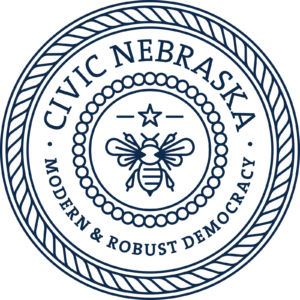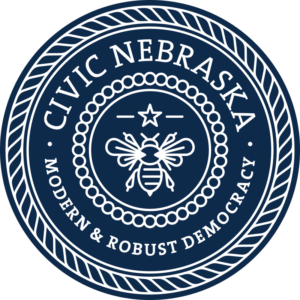On Friday, my wife and I visited a fireworks tent. We masked up, quickly snagged the items we came for, drove across town, and delivered them to a local family we have recently gotten to know. During the pandemic, this family – Mom, Dad, and five kids – is focusing their resources on essentials like food, electricity, and rent. As the Fourth approached we asked the parents if the kids might make use of some smoke balls, sparklers, snakes, fountains, and the like. They said yes, so we obliged.
We wound around the tables, quietly noting what has become an all-too-predictable rundown in the age of coronavirus: Half the customers wore masks and physically distanced, and half didn’t. Not wanting to dwell, we checked out, entered the raffle for the great big Husker-themed aerial bomb they’re giving away later today, and headed for the car.
During the short drive, I pondered three principles that over the centuries have been essential to the idea of America: independence, dependence, and interdependence.
We all know how important independence is to our American narrative. All nations need stories about how they came to be, a self-definition that highlights our unique character. Without the concept of independence in the summer of ’76, we would have no nation. It was so vital, so necessary that our forefathers declared it on paper, signed it, and sent a copy to London.
Today, ask an American about what independence means to them and it won’t take long for them in so many words to echo Thomas Jefferson. We don’t answer to anyone. We take care of ourselves. We don’t need anyone’s permission to live our lives how we see fit, thank you very much.
In America, independence is a national virtue – star-spangled, commanding, triumphant. It’s a personal and moral one, too: Self-governance, powered by self-awareness, gives us agency. It tells us that my rights end where another American’s begins. Independent, together – we all maintain power over our own lives. Undeniably, independence is essential to American life.
And so, too, is dependence.
It might seem strange to say this on a day when we celebrate casting off Britain’s imperial yoke to take our place among the world’s sovereign powers. There certainly are no patriotic anthems to dependence, unless Bill Withers’ “Lean On Me” counts. To some, being dependent is averse to the very idea of America. It means you’re weak, and as a result, Americans who need help are viewed suspiciously – or worse.
But dependence has always been a part of our national story, starting with our desperate need for French ships and Spanish guns during the Revolution. Our national history reflects this understanding that we all do better when we all do better: From free grants of land for 18th-century widows, to Civil War veteran disability insurance, to the New Deal and the Great Society, on up to today, America has a proud tradition of acknowledging the smallest contribution and honoring the greatest need. Undeniably, dependence is a part of American life.
And, most of all, is interdependence.
The understanding that we are all connected has been brought into clear focus. Racial violence has forced us to confront how systemic racism has produced pain and inequality for members of our American family that spans centuries. It’s prevented our country from truly realizing the promise of the Declaration that we hold in such reverence today. It’s reminded us that, in the words of Maya Angelou, none of us can be free until everybody is free.
Likewise, the advance of COVID-19 has shown just how our lives and fortunes are linked. Risk and uncertainty have become the often-cited “new normal” – and this isn’t entirely a bad thing. For years, our relative comfort and security lulled us into the misguided idea that our independence was easily attained. We often acted like we were our own independent republics, depriving ourselves of collaborating and cooperating to tackle common goals. The virus blew up this fallacy; now, we need everyone, regardless of race, income, background, creed, or ZIP code to bring it to heel.
As we turned our car onto our friends’ street, we were greeted by the sight of the family in their front yard, their neighbors having joined them at a safe distance, neighborhood kids already lighting off a sizeable cache of fireworks. We learned that earlier in the day, several families in the apartments on the block had combined their fireworks to create a neighborhood supply; we gladly added what we had to offer. The children eagerly evaluated each new item and began spreading them out for everyone to see.
Independence. Dependence. Interdependence. On July 4, 2020, I’m grateful for each of these self-evident American principles. And I’ll dare to hope that when we gather to celebrate on July 4, 2021 – and every July 4 thereafter – we’ll hold these virtues in greater balance, extend them to all in our community, and practice them with much greater democratic goodwill.
– Steve Smith, Civic Nebraska


